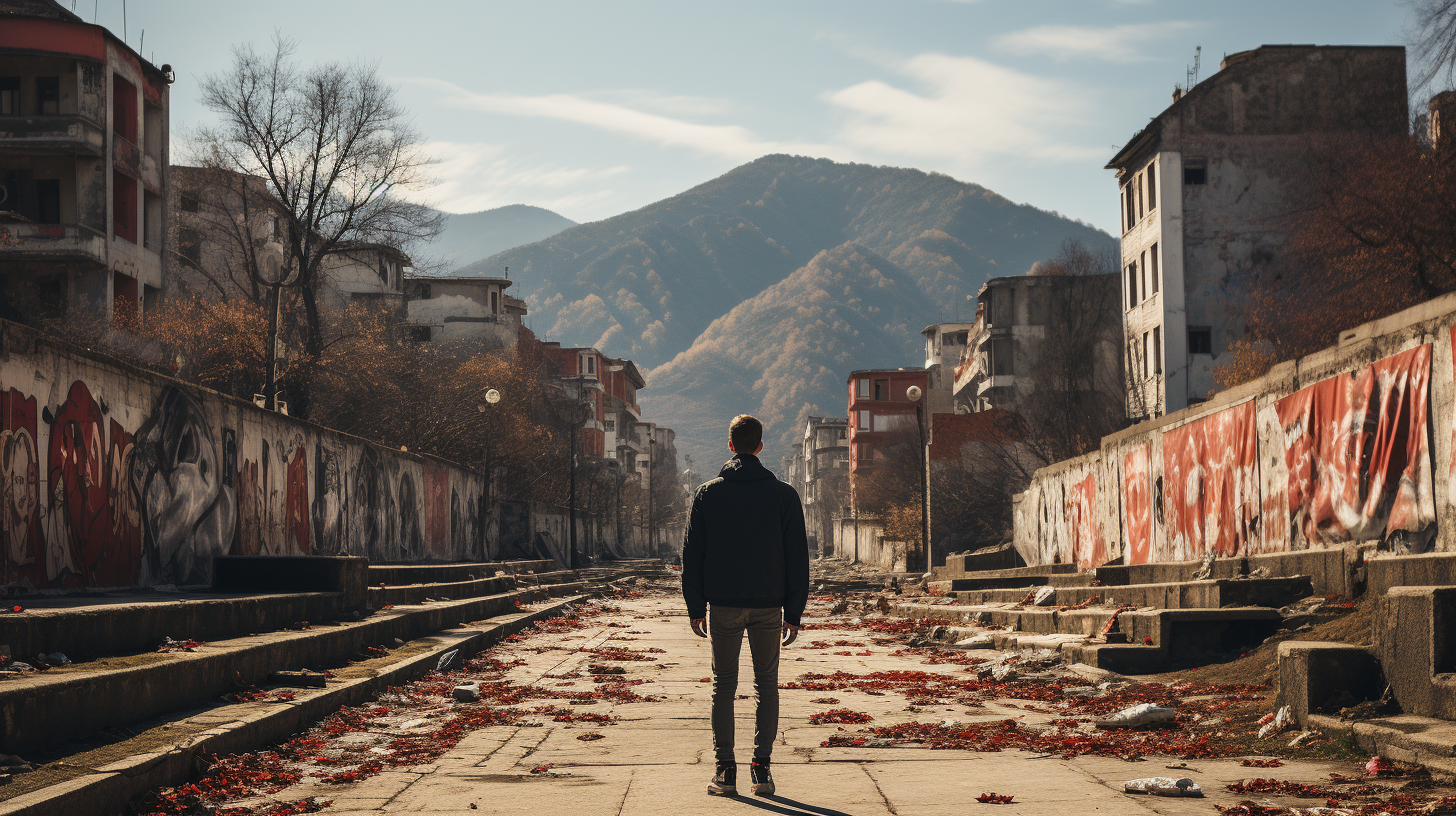
Between two fires
Too Albanian in Macedonia, too Macedonian in Albania.

Ilir Saliu
Ilir Saliu is a lecturer of Albanian language and literature at St. Cyril and Methodius University and a high school teacher of Albanian. He is pursuing postgraduate studies in Albanian literature and cultural studies. He worked as a moderator and journalist on the Alsat television station and runs his own podcast titled “Llafe t’lira.”
This story was originally written in Albanian.